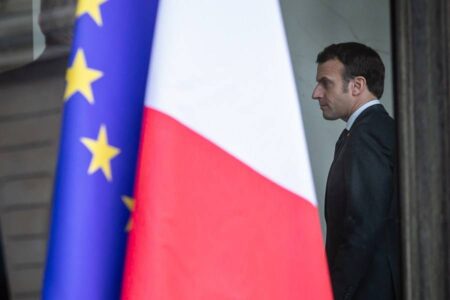
Why Hezbollah and Pakistan now condemn France’s ‘anti-Muslim’ views
Several days after Turkish and Iranian media were given orders by the governing authorities to critique France for “Islamophobia,” condemnations have now poured in from Pakistan and the terrorist group Hezbollah.
The news of the condemnations are reported and pushed by Iran’s Press TV, Turkey’s Anadolu Agency and other state media as part of an effort by the governments to create a largely illusory crisis with France.
The goal appears to be getting several groups and countries to condemn France and thus pressure other countries in the Middle East to appear as if they are not being as strong in defending Islam as the leaders of Iran, Turkey, Hezbollah, Hamas, Pakistan and other groups linked to political Islamic movements.
The supposed controversy involves cartoons published long ago in France and which Paris has consistently defended as free speech. But some Muslim leaders seek to use the “offensive cartoons,” which are said to depict the “Prophet Muhammad,” to fan up flames of populism and mobs.
For instance, in Turkish-occupied northern Syria, mobs burned the French flag and raised one that is similar to ISIS’s. Near the Euphrates River, Turkish media sought to use the controversy to stoke anti-US protests and anti-Syrian Democratic Forces protests to create a crisis. Protesters clashed with the US-backed SDF, and Turkish media invented a story, saying: “PKK fires on protesters.”
The agenda is to try to bring relevance to regimes such as Hezbollah or Pakistan’s far-right leader Imran Khan and encourage the perception that these are the “defenders of Islam,” even if in their own areas people are poor and lack basic services.
The local corruption and lack of services is not seen as blasphemy, but rumors that “France offended Muslims” are used to create a distraction about the alleged “blasphemy.” This is a standard tool used in Pakistan by the far Right to stoke tensions against Hindus, Christians and minorities.
Hezbollah – which has supported the Assad regime in the Syrian war, leading to 10 million people becoming refugees – said it was deeply concerned about “Islamophobia” and that “what was published in France hurt the feelings of more than two billion Muslims.” It did not make a similar statement about whether its actions in Syria had hurt the feelings of those whose cities were destroyed in the war.
Hezbollah has joined Hamas in Gaza, which has ruled the Strip as a dictatorship since 2006, and Palestinian Islamic Jihad and other groups in condemning France. In Pakistan, Prime Minister Imran Khan, who has suggested making amends with the Taliban in the past, said it is “unfortunate that he [French President Emmanuel Macron] has chosen to encourage Islamophobia by attacking Islam.”
Khan has called Osama bin Laden a martyr and has never condemned in similar terms the attacks on the Bamiyan Buddhas by the Taliban or frequent terrorist attacks on Shi’ites, Sikhs and other minorities in Afghanistan and Pakistan.
The latest news about the French cartoon controversy, which dates back more than five years and has now been revived, appears contrived via Iran and Turkey to boost support for various far-right groups that use religion to get support.
It was unclear how Macron had offended Muslims or why the depiction of several cartoons in a few cities in France had caused offense. Some websites, such as Yahoo, even blur the cartoons so that people can’t see them and be offended.
A school teacher was beheaded last week because of rumors he showed cartoons in class. Imran Khan, the Taliban, Hezbollah, Hamas, Qatar, Islamic Jihad, Turkey and Iran did not condemn the beheading as forcefully as they have condemned the alleged publication of the cartoons.
Source: JP





